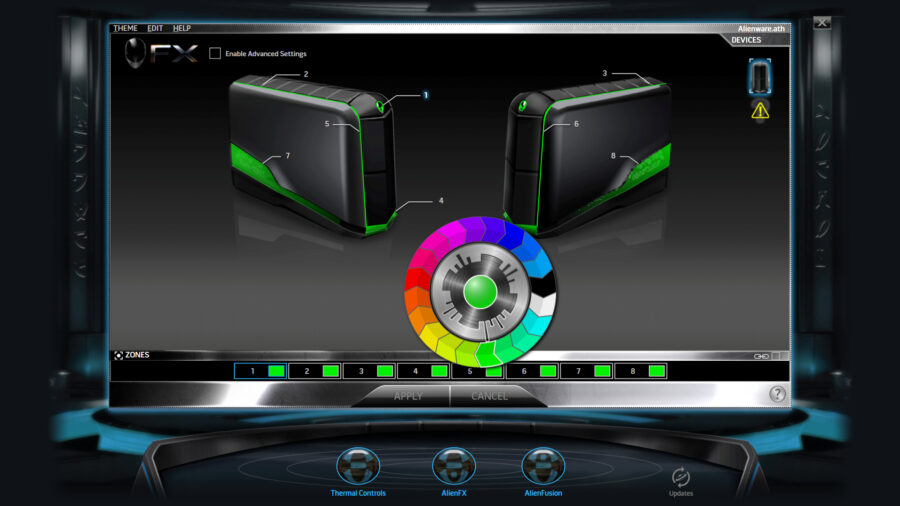Alienware PCs Banned In Certain US States
Alienware computers are being banned in certain states.
This article is more than 2 years old

More than a decade ago, when PlayStation 3 launched, the gaming and hardware community humorously entertained ideas about future generations of gaming hardware. Some even made jokes about future high-end hardware, like the proposed PlayStation 5, requiring special permissions from the Department of Energy due to the proposed hardware’s power consumption. As it turns out, PlayStation 5 is pretty energy efficient and doesn’t require special permissions to operate. However, some of those jokes turned to reality, and Alienware PCs became banned in certain US states due to their high power consumption.
Dell can no longer legally sell select Alienware gaming PCs in six US states due to recently passed power consumption laws, according to a report by IGN. In other words, particular Alienware Aurora R10 and Aurora R12 gaming configurations will are pulled from sales in California, Colorado, Hawaii, Oregon, Vermont, and Washington, in light of the recently passed power consumption law which went into effect on July 1, 2021. Moreover, Dell has ceased shipping said configurations to the aforementioned states, as disclaimed on the company’s website.
And truthfully, when attempting to configure one of those systems, the Alienware Aurora R10 or R12, a warning message appears alerting potential buyers that their order won’t be honored if the destination resides in one of the affected states. This is because the Aurora R10 and R12 systems are built on the latest generation of processors from Intel and AMD, which are still heavy power consumers, despite all energy-efficiency implementations in their design. Adding other components, like a powerful GPU, a networking card, and other hardware, affects the final calculation, which might exceed the proposed 75 kilowatt-hours of electricity per year.

Unfortunately for Dell and its customers who reside in the affected states, most Aurora R10 and R12 configurations consume more power than local regulations permit, with only a few exceptions. For example, the second cheapest Alienware Aurora R12 configuration complies with the new power consumption regulations and ships to all states. However, swapping out any of the components issues a warning message, including swapping an SSD drive for one of smaller capacity but greater power consumption. The very same thing happens with the R10 configuration – the second most affordable one ships out to all US states.
The new restrictions against Alienware stem from the idea that California is the most populous state in the US, with the largest economy, and the nation’s fourth-largest electricity producer, and one of its biggest spenders – second only to Texas when it comes to power consumption. Driven by those numbers, the state of California began releasing different restrictions for various electronic devices, including personal computers. Seeing how the gaming industry is a considerable contributor to carbon emissions, these regulations could potentially save up to 2.3 billion kilowatt-hours annually and avoid 730,000 tons of carbon pollution per year – at least according to NRDC.
Apparently, California has a bone to pick with the gaming industry. A few days ago, the state filed a lawsuit against Activision Blizzard for a toxic workplace culture and sexual misconduct allegations. And while those specific issues have to be addressed with utmost urgency and diligence, the new restriction regarding power consumption might come off as a blow to the gaming community. However, despite the inconvenience, the new planet-saving regulations will prompt Alienware and other companies to find more power-effective hardware solutions, which, ultimately, is a good thing.












